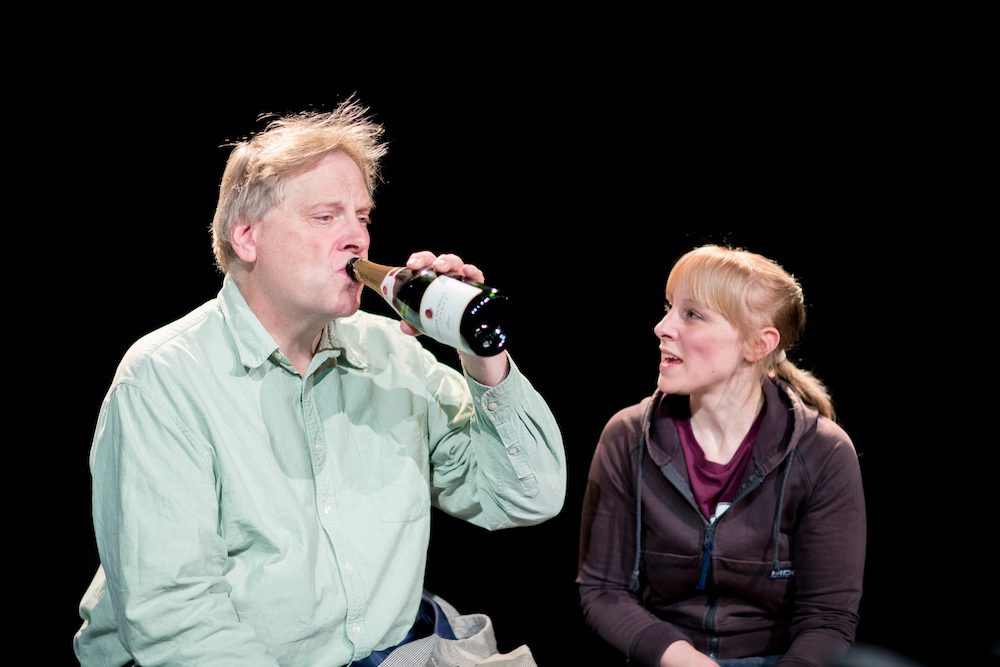I don’t often do this, but I am going to retell something I overheard during the interval of Spiral. I was outside getting what I will euphemistically refer to as ‘fresh air’ and I overheard two women talking about the character of Tom (Jasper Jacobs). It becomes obvious early on that Tom’s daughter has gone and is behaving in some odd ways in his pain and loss. But these women ascribed a much darker motive to his behaviour – he was just a wrongun’ as far as they were concerned – one who was possibly responsible for the daughter vanishing.
I tell this story because theatre happens in context. And as such it can be hard to know how a nuanced and complex story such as Sprial will hit. Tom isn’t an angel, but he hasn’t done much wrong. Even when he hires sex worker Leah (Abigail Hood) it is not for any sexual reason but to recreate his closeness with his missing teenage daughter. Yes, this fairly pisses off his wife Gill (Rebecca Crankshaw) but her drinking – her own understandable response to the tragedy they are living through – worries Tom just as much.
Tom wasn’t just judged by the audience. Throughout the first 2/3rds of the play his behaviour is under suspicion at the school at which he teaches. So our societal attitudes to men’s behaviour is a core theme throughout Spiral. Not least through the bullying Mark (Kevin Tomlinson) whose vicious abuse of Leah triggers a set of circumstances that drive the latter half of the action.
Spiral is a powerful piece of work from a writer I already admired. Hood is an extraordinarily assured writer and performer and while this work may be ever so slightly less mature than Monster (this was written first but delayed by the pandemic) Tomlinson’s direction has grown and this is a slicker production as a result.
My two quibbles would be with Tomlinson’s character Mark who is the most one-dimensional of the characters portrayed and with Gill who is played well by Crankshaw, but is underdeveloped overall – especially in comparison with Tom.
But these are minor points as the relationship at the heart of the play is that between Leah and Tom – and it is one of extraordinary subtlety and nuance. There are real questions to be asked about how healthy or otherwise the relationship is for either of them. How much they are using each other and how much that matters. All of which is there in the writing, ready to make us think and to consider – rather than to immediately judge and condemn.
I hope the audience members I overheard left the second half of this play with a slightly more open mind having their judgement questioned. Because, at best, this is what Hood’s writing does. It forces us to look afresh at horrific situations where our natural instinct is to judge and to ask us to hold our fire. This is beautiful writing that makes you think long and hard. It is emotionally and intellectually affecting and I for one left the theatre a more thoughtful person.

